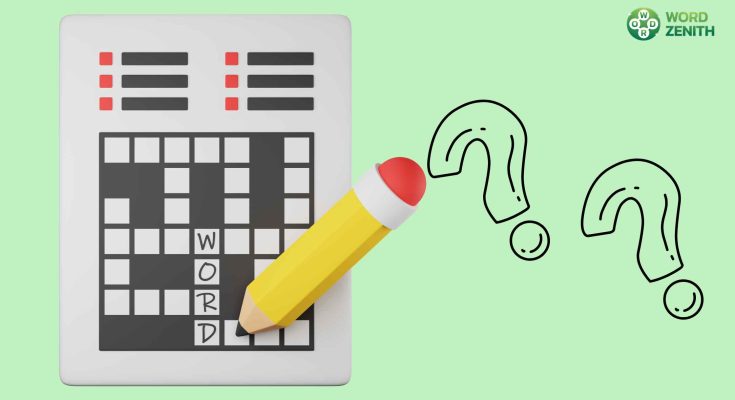In this modern age of interconnectivity, it is vital to build cultural awareness for the sake of unity among diverse communities. Word games can be used as a means to this end. Word games provide an enjoyable and interactive platform for people to learn about different languages, traditions and perspectives. By participating in such games one can develop empathy and respect towards other cultures. This article explores the importance of word games in fostering cultural understanding.
The Power of Language in Cultural Exchange
Language acts as a link that connects people from various backgrounds together, it is not just a tool for communication but also serves as a carrier of cultural knowledge and identity. When we engage with languages other than our own, we get to know about the experiences unique to different communities as well as their values systems worldviews etc. These linguistic and cultural subtleties may be explored through word games which are interactive in nature.
Crossword Puzzles: Unlocking Cultural References
For crossword puzzles players need linguistic competence combined with an understanding of culture. They solve them by working out clues that refer to historical events or figures, literature works (books), geographical places or landmarks among other things, some clues have hidden meanings too. This means players do more than expanding their vocabulary but also learn about what history books could have included so far, where those places are located geographically according to maps etc, which symbolizes what particular item represents based on its usage within society at large. For example if there was a clue saying something like “Japanese traditional dress” – kimono then person solving would get exposed not only into knowing another language like Japanese but also important aspects associated with clothing worn by Japanese women traditionally during ceremonies held throughout the year.
Word Associations: Exploring Cultural Connections
Semantic relationships serve as the foundation upon which word association games build. Within multicultural environments therefore interesting discoveries can be made when considering how different cultures view concepts based on their respective semantic associations. For instance, some societies may associate “fireworks” or “festivals” with the word “celebrations”, while others might think of it as linked more closely to terms like family gatherings and religious events. Thus by playing word association games with people from diverse backgrounds one gains insight into what various ideas mean within different cultural settings.
Promoting Intercultural Communication Through Word Games
To communicate effectively across cultures one has not only master language skills but also be aware about customs, taboos etc. However, word games can help bridge this gap since they provide learners with opportunities for practicing intercultural communication in a safe environment where mistakes are allowed and corrected too.
Language Exchange Platforms: Connecting Global Learners
Online language exchange platforms enable people who are learning languages to meet native speakers worldwide thus increasing linguistic diversity. These sites offer quizzes on vocabulary, puzzles involving words, among other activities that foster both cultural awareness as well language proficiency. By collaborating with natives in word-based online games learners get a chance to ask questions, share findings concerning usage patterns or even gain further understanding regarding contexts within which specific terms might arise during conversation sessions between individuals representing different parts of the globe.
Cultural Sensitivity Training: Building Empathy and Respect
Incorporating word games into programs designed for promoting cultural sensitivity could assist individuals appreciate diverse viewpoints better. Role play scenarios, storytelling exercises together with association exercises make participants step into shoes someone from another culture would wear thereby realizing what such a person goes through in life situations where things work differently due to unique sets, shared values systems, worldviews, history etc. Through involvement in these activities people learn how best navigate their way around new territories given changes brought about by mixing two or more cultures hence creating an inclusive environment.
Leveraging Technology for Global Cultural Exchange
In the digital era technology is crucial in facilitating worldwide cultural exchange through word games. Mobile applications, online platforms and virtual reality experiences offer new ways of interacting with language and culture from any part of the globe.
Apps that Teach Language Through Games: An Enjoyable Way to Discover New Worlds
Applications that teach languages through games make use of different game elements like levels to cross, awards to obtain and many others so as to inspire users to learn various languages and explore other cultures. Users are able to immerse themselves into more interactive learning than traditional teaching would allow for by taking part in such activities as matching words, pronouncing them correctly or answering cultural questions among others. Additionally, these programs give an opportunity for learners to interact with native speakers, participate in forums where people share about their lives from all over the world thus gaining wider perspectives on global diversity.
Virtual Reality Language Experiences: A 3D Cultural Exchange Program
Virtual Reality (VR) technologies enable us not only see but also feel what life could be like somewhere else through simulated environments and interactivities. Virtual reality language courses involve students visiting different cities around world virtually, meeting characters who speak foreign tongues fluently so they can practice speaking those themselves, engaging in typical scenarios like ordering food at restaurants or bargaining at markets among many other things depending on individual interests etc. thereby enabling them acquire deeper understanding about how people live based on where they come from if nothing else.
Read More: Word Games as a Means of Promoting Mental Wellbeing and Reducing Cognitive Decline in Older Adults
Conclusion
Word games break language barriers while creating strong relationships between people from diverse cultures. It is possible for one person with knowledge of many languages or references made by another group during conversation which may appear difficult initially therefore playing a key role will act as a bridge between them leading towards empathy development appreciation levels rising up and eventually understand better why everything around us had always been so complex anyway? Crossword puzzles should be encouraged more because they let individuals have fun while learning different terms used across various societies worldwide, not forgetting about associations between words through online platforms meant for exchanging languages or even using word games that are in virtual reality. In this age where we have become one village due to globalization and cultural diversity, nothing could be more important than embracing word games as tools for enhancing awareness and understanding of other cultures.




